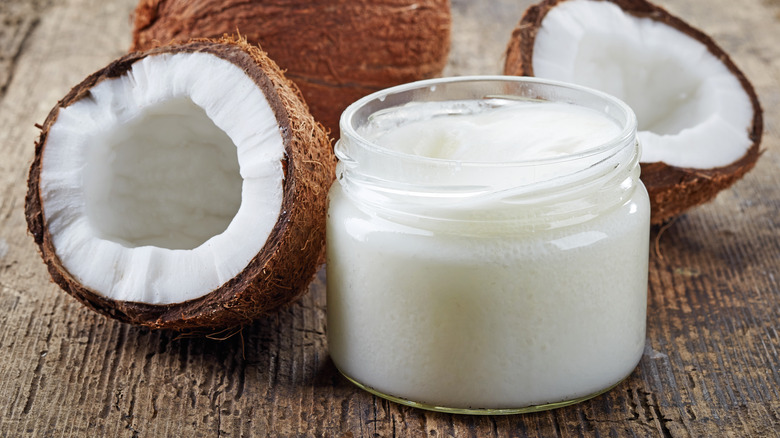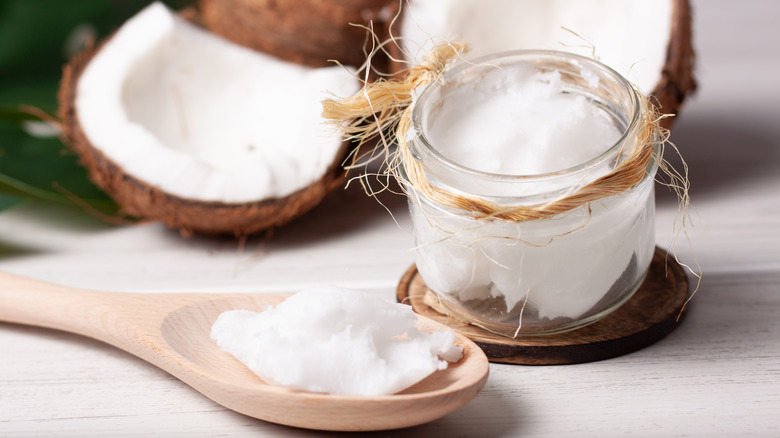What To Consider Before Substituting Shortening With Coconut Oil
Some of the most decadent cakes, cookies, and brownies are made up of shortening, which is a "solid vegetable fat" composed of hydrogenated vegetable oil. Compared to the roughly 80% fat content in butter and lard, shortening is 100% fat, which helps to make desserts quite tender, per Culinary Nutrition.
There are several advantages to using shortening. For one, you don't have to refrigerate it, whether it's opened or unopened, via the USDA. It also has a high melting point, so it won't melt so easily when used in dough or buttercream recipes, especially during hot days, as explained by Webstaurant Store. But perhaps the biggest advantage comes with what shortening does to baked goods.
Cake Journal notes that a gluten matrix won't form when shortening is incorporated into specific baked goods. Overall, it seems to make textures way better. Cakes are lighter, cookies are fluffier, and buttercream is much more stable (per King Arthur Baking). The only bad part is how flavorless shortening is, though butter-flavored options may be available.
That being said, if shortening isn't your thing, no worries because you can reach for lots of shortening substitutions. Some options include butter, lard, and even applesauce. Coconut oil is another popular swap, but before you reach for some, here's something to keep in mind.
Coconut oil affects flavors and textures
So, unlike other types of oils, coconut oil tends to stay solid unless it's exposed to super hot temperatures, per Food52. It also follows a 1:1 ratio for being a shortening substitute, which means that one tablespoon of shortening can be swapped for one tablespoon of coconut oil.
It's not that coconut oil affects baked goods in a bad way, but it does change flavors and textures. We're talking about crispiness, crunchiness, and nutty tastes with each bite. Granted, this also depends on which kind of coconut oil you use. The WorldNews Network states that there is refined coconut oil and unrefined (or virgin) coconut oil.
Unrefined coconut oil has a "pure coconut flavor" and utilizes fresh coconuts. So, when you use this oil in baked goods, you're going to get stronger coconut scents and flavors, as Food52 mentions. On the other hand, refined coconut oil is more neutral since it uses dried coconut meat, aka copra. It can also "heat up to 400 Fahrenheit" versus unrefined coconut oil's 350 degree Fahrenheit maximum. So in short, refined coconut oil is a great option for when you don't want a strong coconut flavor in baked goods.
Coconut oil is definitely a suitable swap for shortening, but just keep in mind that the resulting dessert may taste like coconut with lots of crispiness.

